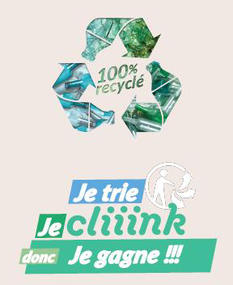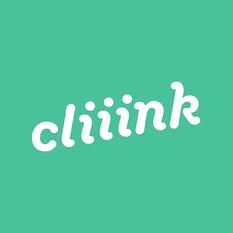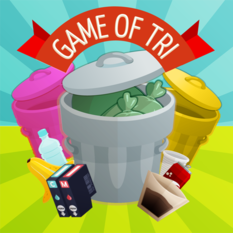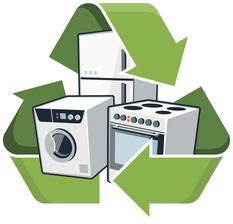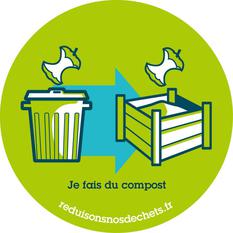Eco-friendly actions : Waste
#1 Comply with the new guidance on sorting waste
What is the guidance on sorting waste in Monaco ?
With blue bins no more, there are just three options for your waste in Monaco :
1) Yellow bin : this is for your plastic containers/bottles, metal packaging, food wrap, newspapers/magazines, bags/sachets, pots/tubes, tubs/blister packs, cardboard packaging and cartons, envelopes, paper.
2) Green bin : this is for glass (excluding crockery and special types of glass – bulbs, mirrors, windows and with lids and corks removed).
3) Grey bin : for household waste.
How can you reduce your waste ?
The environmental challenges now involved in processing waste are enormous. It’s possible to reduce this waste by following the 5Rs :
- Refuse (only use what you need)
- Reuse (give a second life to items/waste)
- Reduce (buy more items loose, without packaging)
- Recycle (sort your waste correctly)
- Rot (learn to compost your waste)
Resources
- https://www.sma.mc/images/uploads/doc/30-mag-du-tri-2019.pdf - Recycling magazine
- https://www.sma.mc/images/uploads/doc/15-destination-des-flux-du-tri-selectif.pdf - List of destinations for waste streams collected in the Principality
- https://www.sma.mc/ - Official SMA website
- https://en.service-public-particuliers.gouv.mc/Housing/Home/Waste-collection/Recycling-in-the-Principality - Information on other types of waste (batteries, bulbs, etc.)
- https://en.monacochannel.mc/Channels/Princely-Governement/Videos/Environment-making-recycling-easier - Monaco Info report on the new guidance for sorting waste introduced in 2019
#2 Recycle glass at Cliiink terminals
What is Cliiink and what advantages does it offer ?
Cliiink is the leading recycling reward programme in France! Comprising a website and a mobile app or contactless card, Cliiink is an important tool that allows users to recycle their everyday waste and receive rewards. The programme reintroduces the concept of a deposit to recycling bins. It’s a common sense approach which rewards eco-friendly behaviour to improve recycling performance, offer a boost to the local economy, keep the city cleaner and generate savings (real-time monitoring tool to help optimise collection runs).
How to use Cliiink
1 - Find a recycling bin near you (after registering, you can check the map to find your nearest bin)
2 - Sign in (using your smartphone or magnetic card)
3 - Deposit your glass waste
4 - Check your points (the system is equipped with a sensor which identifies your waste and automatically rewards you by allocating you points. The more you recycle, the more points you get! You can check your points total at any time using the mobile app)
5 - Exchange your points for a Cliiink offer (find an offer near you and exchange your accumulated points, or donate them to a charity)
Resources
- Official Cliiink website
- Map of recycling bins
- Video tutorial on how to use the app
- Video tutorial on how to use the magnetic card
#3 Use the Game of Tri app
What is Game of Tri ?
Game of Tri is an educational game for children and adults, available on PCs, tablets or smartphones to help users learn about sorting waste.
How to play
- Download Game of Tri on the App Store or Google Play (recommended for touchscreen play)
- Enter the activation code ‘Monaco’ (with a capital M) and ensure that you have a working internet connection when you enter the code so that the app downloads the settings
- You’re ready to play !
Resources
- Download the app on Google Play
- Video introducing the game
#4 Recycle your electronic devices and electrical appliances
Which devices and appliances can be recycled ?
All electrical and electronic devices – those that operate on batteries or mains power – can be recycled. The cables and connectors that are used with these appliances are also recyclable. To help you, look for the image of the crossed-out wheeled bin – if it appears on your product, that means you must recycle it. All electrical and electronic devices can be recycled, regardless of size, from the smallest USB stick to the largest refrigerator (58 kilograms is the average weight of all the unused devices kept by each person in France !). Whether they are in good condition or no longer work, you can dispose of them at the collection point that best meets your needs.
Why should you recycle your devices ?
- To protect the environment : by recycling your devices at a collection point, you can be sure that the hazardous substances in your devices will not be dumped in the natural environment. All of the pollutants will be carefully removed from your devices before being disposed of at specialist facilities. By recycling, you are preventing the environment from becoming contaminated by substances which are harmful to health.
- Save natural resources : recycling helps to conserve our natural resources by preventing the extraction of new raw materials. The materials from the devices you recycle can be used to manufacture new products. For example, the plastic from your old vacuum cleaner could be used to produce a new coffee maker! By recycling, you therefore help to save natural resources and avoid the pollution caused by producing new materials.
- Create employment: recycling electrical and electronic devices creates 7,000 jobs in France, including 1,800 designed for those who find it difficult to access employment.
How to recycle your devices
- Take them to a specialist store (such as FNAC) which will accept them for free and pass them to an organisation responsible for recycling them.
- Take them to a charity : you could sell your devices, but you can also donate them and do something to support the social and solidarity economy. A number of charitable and other organisations now collect and process electronic waste. In doing so, they help people experiencing difficulties to get back into employment and reintegrate with society. These can be major national organisations such as Emmaüs or Envie, but there are also many local charities and shops which specialise in recovery and recycling dotted throughout the country. You can take your used items to them, whether they still work or not.
- Take them to a special collection point (for items such as batteries, bulbs, etc.).
- Call SMA which offers a bulk waste collection service from private properties.
- If they are in working condition, sell second-hand items through classified websites like Leboncoin (and consider buying second-hand occasionally, too).
Resources
- FNAC recycling procedure
- Non-profit environmental organisation that is accredited to collect and recycle used electrical and electronic household devices in France
- Article on recycling electronic devices (French only)
- Information about SMA public bulk waste collection
- Information about SMA private bulk waste collection
- List of waste collection sites in the Alpes-Maritimes region
- Location of collection sites for batteries, bulbs and small electrical appliances
#5 Compost your everyday waste
What is composting ?
Composting is an aerobic biological process that converts and recycles organic matter (by-products of livestock farming, biomass, household organic waste, etc.) into a stable, hygienic, soil-like product that is rich in humic substances and minerals : compost. Domestic composting is carried out in simple heaps or in compost bins. It transforms the majority of biodegradable household waste, which accounts for around 30% of domestic waste: food waste (egg shells or crushed nuts), peelings, garden waste (grass cuttings, leaves, thin branches, straw), paper, cardboard and wood (untreated). Three kilograms of compostable waste produce around one kilogram of compost.
Why should you compost ?
1) Composting helps to reduce the amount of household waste collected : ‘fermentable waste’ or ‘bio waste’ makes up more than 30% of our grey bins – that’s between 45 and 60 kilograms per person per year ! If you compost it, then it’s recycled rather than incinerated, and this makes a big contribution to reducing waste.
2) By recycling organic waste at home, composting provides a free source of compost and a natural soil conditioner. It saves money and there’s no longer any point buying soil or traditional fertilisers and plant protection products. Using natural fertiliser at home means you can avoid harmful and polluting products.
3) Compost improves soil fertility : it regenerates land (releasing nutrients over the long term), increases the proportion of living organisms in the soil, retains water in the soil (less watering), lightens clay soils, helps plants to grow, protects them against disease, mitigates daily temperature fluctuations, and more. Your flowers, fruits and vegetables will be fantastic !
How to compost ?
Whatever technique is used, the principle is always the same. It is vital to ensure that the micro-organisms have the perfect conditions in which to multiply and decompose the organic matter. To achieve a good compost, it’s important to take account of the following factors :
1) Aeration 2) Humidity 3) Carbon/nitrogen ratio 4) Good management
The technique you choose should reflect the amount of material you have to compost. If you have several hundred litres per year, opt for a compost bin. If you have one or several cubic metres per year, then silos are the best option for you. If you have more than that, then it’s best to use a compost heap. Of course, the amount of material you have to compost will depend primarily on the size of your land.
Resources
- Article on composting (French only)
- Mini-guide to domestic composting (French only)
- ADEME guide to composting (French only)
- Report by Maison France 5 on composting (French only)


[#YourMonaco]
— Gouvernement Monaco (@GvtMonaco) July 31, 2020
La Principauté se dote d'un nouvel outil de communication urbaine. https://t.co/5f1DsYi2No


